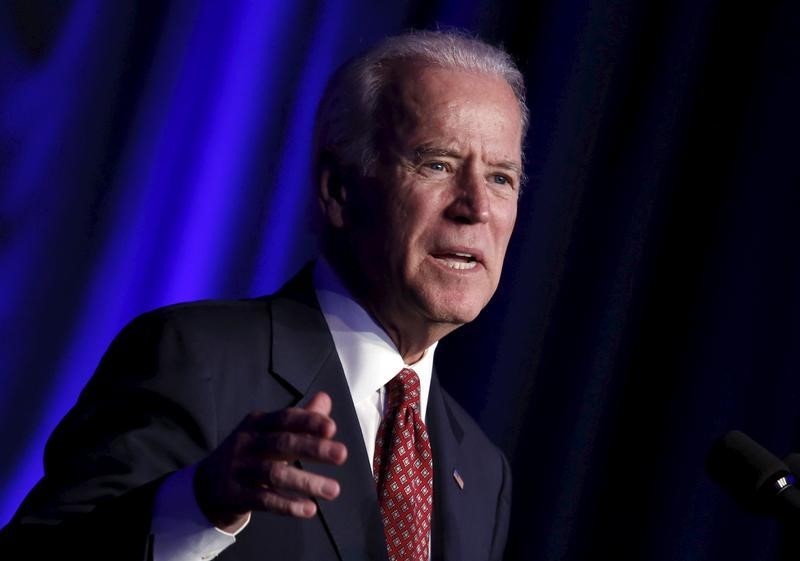By Timothy Gardner
WASHINGTON (Reuters) - The White House has secured more than $4 billion to boost clean energy and fight climate change from foundations, institutional investors and philanthropies, doubling a goal set in February, administration officials said.
Vice President Joe Biden told a conference on clean energy at the White House on Tuesday that a "staggering" number of long-term jobs can be created in the sector "if we make the investments."
The administration issued a call to action early in the year asking them to make commitments on clean energy innovation, and "we've seen a really overwhelming response," White House senior adviser Brian Deese told reporters late Monday, previewing the announcement.
To help facilitate the commitments, the administration increased access to federal information and provided technical assistance, Deese said. However, the extent to which the White House's call to action actually increased commitments they may have been considering anyway was unclear.
In an example of these commitments, institutional investors at the University of California's office of the chief investment officer, the New Zealand Superannuation Fund, the Alaska Permanent Fund, and the Teachers Insurance and Annuity Association–College Retirement Equities Fund (TIAA–CREF) mobilized more than $1 billion for clean energy innovations. That effort will help identify and screen companies and projects for investments that help fight climate change, the White House said.
The investments make moral sense, and are good for national security and the economy, Biden said.
"There's no doubt," the country will remain the top economic power of the 21st century if it invests wisely in fighting climate change, Biden said in his first public appearance since his son Beau died last month of cancer.
In addition, the Energy Department will launch a Clean Energy Impact Investment Center to help speed other financing for clean energy.

"The idea is to make the department's resources ... including of course our 17 national laboratories ... more readily available to the public, including the mission driven investors," Energy Secretary Ernest Moniz told reporters.